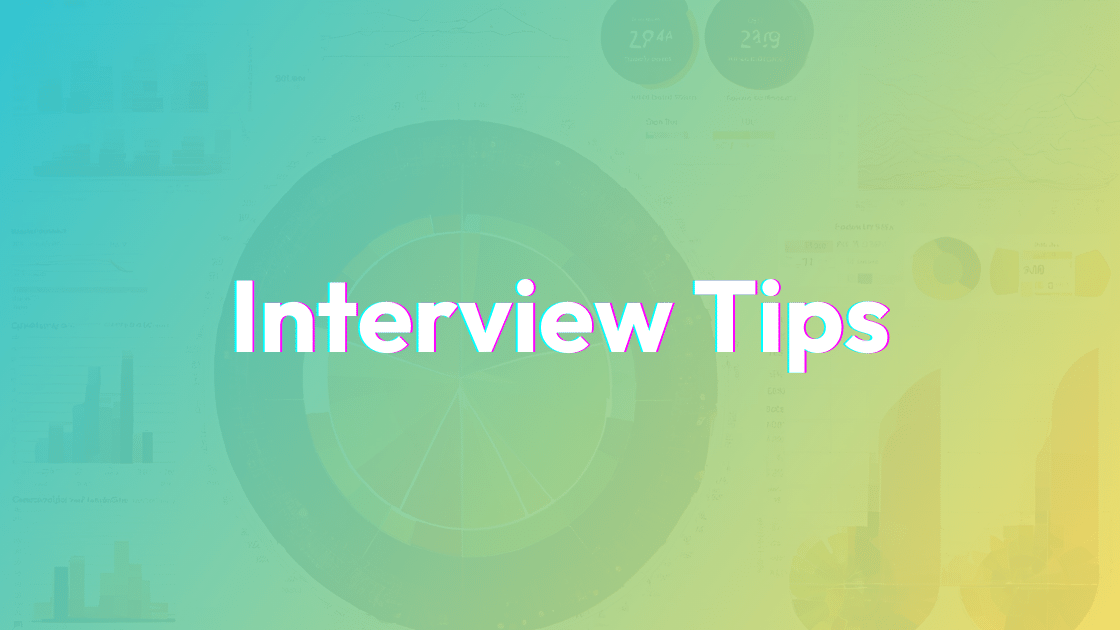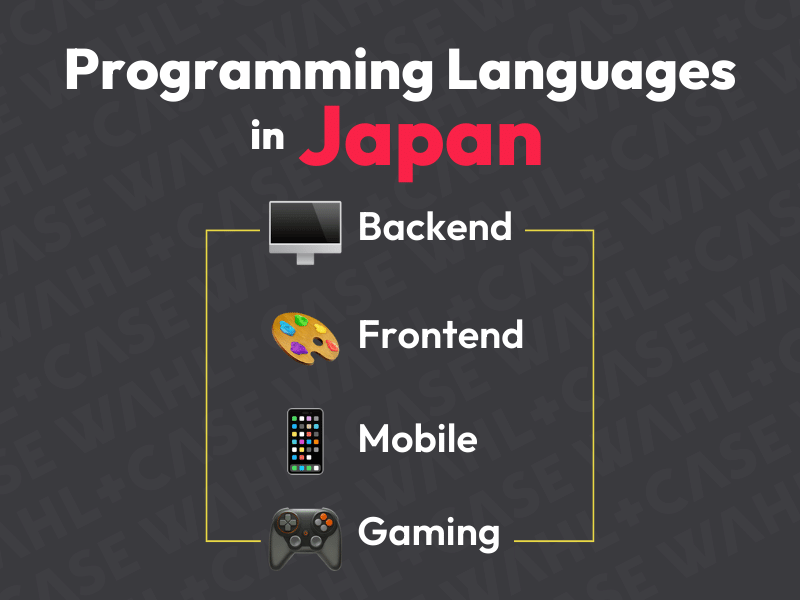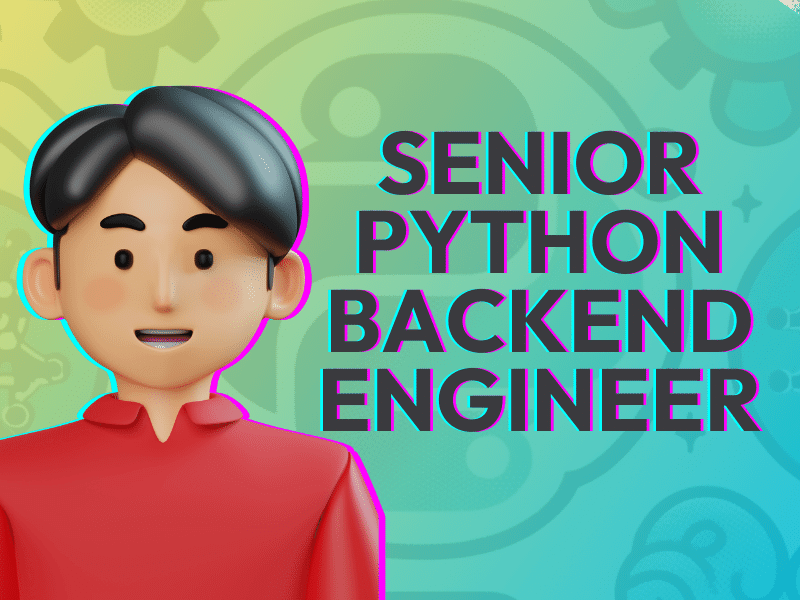AI/ML Senior Data Engineer: Everything You Need to Know
If you are an Engineer looking to take the next step in your career, this role is for you.
I recently had an enlightening conversation with Charis Angela, a consultant on our backend engineers team, who specializes in recruiting (you guessed it) backend engineers and developers.
She provided insights into what it takes to excel as a Senior Data Engineer, and I'm here to share that wisdom with you.
There’s a lot to cover, so let’s get started.
What is a Senior Data Engineer?
As a Senior Data Engineer, you'll be the linchpin in scaling products and managing data pipelines.
You'll be responsible for extracting, transforming, and loading (ETL) various types of data to support machine learning modules in core products.
You'll be working with data analytics tools like Spark and Hadoop as well as programming languages like Python to ensure that data pipelines are efficient, resilient, and scalable.
Day-to-Day Tasks
Data Collection and Integration
You'll start your day by checking the health of automated data collection processes. This involves ensuring that data from various sources like databases, APIs, and external services is being ingested correctly into your data ecosystem.
Data Transformation
You'll spend a significant portion of your day writing and optimizing code for data transformation. This could involve cleaning the data, handling missing values, and transforming raw data into a more usable format for analysis or machine learning tasks.
Pipeline Monitoring
Ensuring that data pipelines are running smoothly is crucial. You'll monitor performance metrics, troubleshoot any issues, and work on pipeline optimization to improve efficiency and reduce latency.
Collaboration with Data Scientists and Analysts
You'll frequently collaborate with data scientists and analysts to understand their data needs. This could involve modifying existing ETL processes or creating new data pipelines to support ongoing analyses or machine learning projects.
Code Reviews and Quality Assurance
Quality is key in data engineering. You'll engage in code reviews, write unit tests, and use continuous integration tools to ensure that the code meets quality standards and that data integrity is maintained.
Documentation and Reporting
Clear documentation is essential for long-term project sustainability. You'll document your code, the architecture of your data pipelines, and any changes made to existing systems. You may also prepare reports to provide insights into the health and performance of your data systems.
Staying Updated
The tech landscape is ever-changing, especially in the AI/ML field. You'll allocate time to read industry publications, research papers, or even take short courses to stay updated on the latest technologies and methodologies.
AI/ML Senior Data Engineer Requirements
Data Pipelines and Big Data Analytics: You should be experienced in working with big data analytics tools like Hadoop, Spark, and Hive, especially in production environments.
Database Skills: You'll need to be proficient in various database types and technologies, such as PostgreSQL, MongoDB, and Cassandra.
Python Coding: A skilled Python coder, you should be familiar with testing, debugging, and quality assurance tools like CI and linting.
Data Exchange Technologies: You should have knowledge of interservice data exchange technologies like REST, queuing, and RPC.
System Design: Hands-on experience in designing complex system interactions is a must.
Teamwork: You'll need to be adept at using collaborative tools like Git and BitBucket.
Bonus Points
Familiarity with data orchestration tools like Airflow and Dagster
Exposure to machine learning and MLOps
Node.js and JavaScript knowledge
Professional-level communication skills in Japanese (in Japan obviously)
5 Skills that will make you stand out when applying for a Senior Data Engineer position
Based on Cha's conversations with her clients, here are the 5 skills you need to get the job as a Senior Data Engineer:
1. Python or Scala:
Why It Matters
Both Python and Scala are widely used in data engineering, especially in big data processing and AI/ML tasks. Your proficiency in either language can be a strong indicator of your coding and problem-solving abilities.
How to Prepare
Before your interview, brush up on your coding skills with exercises and challenges related to data manipulation and algorithms. Be ready to demonstrate your expertise in a live coding test, which may involve data structures, algorithms, and possibly some domain-specific problems.
2. Hadoop, Spark, or Hive:
Why It Matters
These are the cornerstone technologies for big data processing. Mastery of these tools can show that you're not just familiar with data engineering but are also capable of handling data at scale.
How to Prepare
Gain hands-on experience with these technologies, either through your current job, freelance projects, or personal projects. Understand their architecture, strengths, and limitations. Be prepared to discuss how you've used these tools in real-world scenarios.
3. Data Architecture:
Why It Matters
Data architecture is the blueprint that enables efficient data storage, retrieval, and management. A well-designed architecture can significantly impact the performance and scalability of AI/ML projects.
How to Prepare
Study different data architecture patterns like Lambda, Kappa, and Delta architectures. Understand how to choose the right architecture based on specific project needs. Be ready to discuss your experience in designing or working with these architectures.
4. Data Structuring and Pipelining:
Why It Matters
Efficient data pipelines are crucial for timely data delivery and are the backbone of any data-driven decision-making process, especially in AI/ML projects.
How to Prepare
Familiarize yourself with data pipeline tools like Apache NiFi, Luigi, or Airflow. Understand how to build, monitor, and optimize data pipelines. Be prepared to explain your approach to data pipelining, including how you ensure data quality and integrity.
5. ETL (Extract, Transform, Load):
Why It Matters
ETL processes are fundamental to data engineering. They involve extracting data from various sources, transforming it into a usable format, and loading it into a data warehouse for analysis.
How to Prepare
Master the ETL tools that are commonly used in the industry, such as Talend, Informatica, or custom solutions using Python or Scala. Understand best practices for each stage of the ETL process and be ready to discuss how you've implemented these in your past projects.
Senior Data Engineer Career Progression
As a Senior Data Engineer, you can progress to roles like Data Platform Engineer, Data Manager, and even Chief Data Officer (CDO).
You'll have the opportunity to manage your own team of data engineers.
Tips for Landing the Senior Data Engineer Job
Start with Database Knowledge: Familiarize yourself with main DB types and technologies like PostgreSQL, MongoDB, and Cassandra.
Career Path: Most Senior Data Engineers start as software engineers or BI analysts. You'll need programming and database skills, which are also required for backend software engineering roles.
Experience: Try to gain experience on high-traffic projects. Employers value candidates who have managed data in high-traffic environments.
Showcase Your Portfolio: In a field as competitive as AI/ML, having a portfolio that demonstrates your skills can set you apart from other candidates. Create a GitHub repository or a personal website where you showcase your projects, especially those related to data engineering and AI/ML. Make sure to include detailed documentation and code comments to help potential employers understand your thought process.
Tailor Your Resume and Cover Letter: A generic resume won’t make you stand out. Tailoring your application to the specific job description can catch the employer's eye. Highlight your most relevant experience and skills in your resume. In your cover letter, focus on how you can add value to the company, particularly in the context of AI/ML projects.
Senior Data Engineer Interview Tips
Presenting Yourself
You should be able to articulate how you manage data in real-world scenarios.
Start with explaining the project you were working on, for example, Rakuten Ichba.
Go over the specifics of the project.
In the Rakuten Ichiba example: “The traffic is coming from Japan, this is the amount of traffic we get, this is the specific data we collect, this is how I manage the data.”
Now, talk about how the data is used after you collect and manage it.
Going back to the Rakuten Ichiba example: “The data science team analyzes the user’s behavior, their way of thinking, and reactions to the product. They also look at things like if they opened the product page but didn’t buy. From there, we would decide to implement something like a one-click-to-buy system, a click-to-subscribe system, etc.”
This can seem like a lot to remember, Charis and I recommend using the STAR interview method.
STAR Interview Method
This tip actually comes from my time working with Amazon as a client.
The STAR method was their preferred structure for their behavioral interview questions.
The STAR method provides a clear framework to structure your answers during interviews. It stands for Situation, Task, Action, and Result. Here's a brief overview:
Situation - Start by describing the context or background where you performed a particular task or faced a challenge. Be specific and set the stage for the interviewer.
Example: "At my previous job, we were working on an AI project aimed at predicting customer churn. The data was scattered across multiple databases, and the team was struggling to get accurate predictions."
Task - Explain the specific task or responsibility you were given in that situation. What was the problem or challenge that you needed to address?
Example: "My task was to consolidate all the relevant data into a single, clean dataset that could be used to train our machine learning model more effectively."
Action - Detail the actions you took to address the task. This is your chance to showcase your technical skills and problem-solving abilities.
Example: "I designed a scalable data pipeline using Python and Spark. I implemented ETL processes to clean and transform the data, integrated it with the machine learning model, and set up automated workflows for data updates."
Result- Conclude by describing the outcome of your actions. Whenever possible, quantify the results to make your story more compelling.
Example: "As a result of these changes, the accuracy of our churn prediction model improved by 20%. The team was able to identify at-risk customers more effectively, leading to a 15% reduction in customer churn over the next quarter."
Coding test
Expect a live coding test in Python.
You'll be asked to solve problems efficiently and explain your code.
Be sure to acknowledge any gaps in your know-how and how you go about acquiring the knowledge you need to solve issues.
Non-Technical Questions
For less technical questions, you might be asked about your experience in creating data structures or managing data from various sources.
Here is where you should ask questions about the specific of the company you are applying to.
Alternative Titles
Depending on the organization and the specific focus of the role, a Senior Data Engineer might also be referred to by one of the following titles:
Lead Data Engineer
This title often indicates a more senior position, possibly involving team leadership responsibilities in addition to technical tasks.
Data Platform Engineer
This title suggests a broader responsibility for the entire data platform, not just the pipelines. You might be responsible for the architecture and overall health of the data platform.
Big Data Engineer
This title is commonly used when the role specifically involves working with big data technologies like Hadoop, Spark, and Hive.
Data Pipeline Engineer
This title emphasizes the role's focus on creating and maintaining data pipelines, often in real-time processing environments.
ETL Developer or ETL Engineer
While similar to a Senior Data Engineer, this title usually focuses more on the Extract, Transform, Load (ETL) processes and might not involve as much work with machine learning or advanced analytics.
Senior Data Engineer FAQ
What kind of salary can you expect as a Senior Data Engineer specializing in AI/ML?
This is often one of the first questions on everyone's mind.
While the salary can vary depending on the company, location, and your experience, Senior Data Engineers in AI/ML generally command higher salaries compared to those in more traditional data engineering roles.
It's essential to research the market rates in your area and be prepared to negotiate based on your skills and experience.
How can you keep your skills updated in this field?
The tech landscape, especially in AI and ML, is ever-changing. You should be proactive about your learning.
This could involve taking online courses, attending workshops, or even going back to school for more advanced degrees. Networking with professionals in the field and staying updated with industry news can also give you an edge.
What is the work-life balance like in this role?
Work-life balance can vary from company to company and even project to project within the same organization.
However, given the high-stakes and often time-sensitive nature of AI/ML projects, you might find that the role demands longer hours or more intense periods of work, especially when deadlines are looming.
Don’t be afraid to inquire about this during your interview process to ensure the role aligns with your lifestyle expectations.
What is the difference between a Senior Data Engineer and a Data Scientist?
While both roles work closely with data, a Data Scientist focuses more on analytics, statistical models, and deriving insights from data.
As a Senior Data Engineer, you'll be more concerned with creating robust, scalable data pipelines that can handle the data needs of AI/ML projects.
You'll ensure that the data is accessible, consistent, and ready for analysis by Data Scientists.
What is the difference between a Senior Data Engineer and a Machine Learning Engineer?
A Machine Learning Engineer primarily focuses on designing, building, and deploying machine learning models. In contrast, as a Senior Data Engineer in AI/ML, you'll be responsible for the data architecture that feeds these models.
You'll work closely with Machine Learning Engineers to ensure that the data is appropriately preprocessed, cleaned, and made available for training and inference.
What is the difference between a Senior Data Engineer and a Data Analyst?
Data Analysts are generally responsible for interpreting data to provide actionable insights. They often use tools like SQL, Excel, and basic statistical methods to analyze data. As a Senior Data Engineer, you'll be working with more complex tools and technologies like Hadoop, Spark, and Python to build data pipelines, and your focus will be more on the technical side of data handling.
What is the difference between a Senior Data Engineer and a Solutions Architect?
A Solutions Architect often takes a higher-level view, focusing on the overall architecture of the data and systems in place. They may not be as hands-on with the data but will work on designing the systems that you, as a Senior Data Engineer, will implement. Your role is more specialized, focusing on the intricacies of data sourcing, transformation, and loading, particularly in the context of AI/ML projects.
How can i get a Senior Data Engineer position?
Charis and I would be happy to assist you in finding your next role.
Message us using this link to find out what Data Engineer positions are open here in Tokyo!
Resources
For further reading, you might find these resources helpful:
































